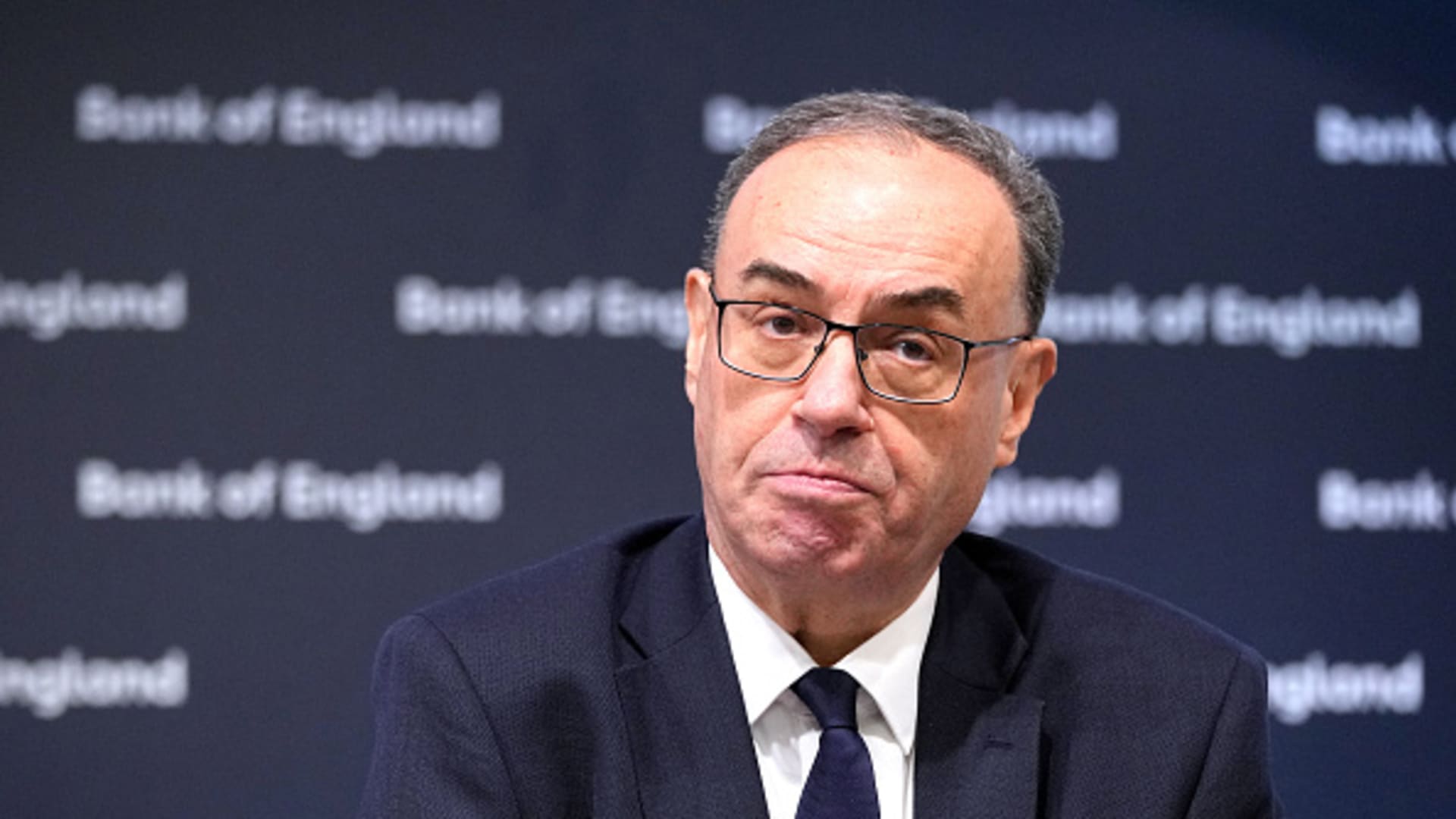Even if the U.K. is not the “direct recipient” of potential tariffs imposed by the U.S., “it will have an effect,” Bank of England Governor Andrew Bailey said Thursday.
If tariffs are announced, their effect on the global economic growth and inflation would need to be looked at, Bailey told CNBC’s Steve Sedgwick.
“Now I think that in terms of growth in the world economy, if this will lead to a, you know, fragmentation of the world economy, that is not good for growth,” Bailey said. “The impact on inflation is more ambiguous, because it depends upon what other countries do in response, it depends on what the consequences of those actions and reactions are for trade,” he added.
U.S. President Donald Trump has warned that the U.K. could be in line for tariffs, but has also indicated a deal could potentially be struck. Trump last week announced tariffs on goods imported from China, Canada and Mexico, before pausing planned duties on imports from the two latter economies.
Bailey on Thursday also noted that the U.K. “does not have a substantial trade imbalance with the U.S.”
The U.S. was the U.K.’s biggest trading partner in the year to September 2024, accounting for over 17% of total U.K. trade, according to official data.
Depending on which figures you look at, the two countries either have a small trade deficit or surplus. What’s important for Trump, though — who has expressed dissatisfaction when the U.S. exports less to a country than it imports — is the numbers are almost balanced.
Bailey also pointed out that services are a large part of U.K. trade, which classic tariffs do not affect in the same way as other goods.
A ‘gradual’ and ‘careful’ BOE decision
The Bank of England on Thursday cut its benchmark interest rate by 25 basis points to to 4.5%. Seven members out of the nine-strong monetary policy committee (MPC) voted in favor of the cut, while two members voted for a larger 50 basis-point reduction.
After the announcement, Bailey said in a press conference that the MPC expected to be able to cut interest rates further as disinflation progressed, but noted that these decisions would be taken on a meeting-by-meeting basis.
Speaking to CNBC, Bailey described the cut as “careful” and “gradual,” adding that the central bankers were using those words “very deliberately.”
The word “gradual” referred to the disinflation process, while “careful” was a nod toward “risks and uncertainties,” he said.
Such uncertainties, “could lead to us having, frankly, you know, higher inflation, which we will have to deal with. We’re going to have this sort of uptick in inflation.” He added that this inflation is unlikely to persist.
The BOE on Thursday also halved its growth expectation for the U.K. for 2025, from 1.5% to 0.75%.
The economy flatlined in the third quarter, according to data released in December, while the latest monthly GDP reading showed the economy expanded just 0.1% in November, after shrinking by 0.1% in October.
— CNBC’s Chloe Taylor and Holly Ellyatt contributed to this report.

 Accounting1 week ago
Accounting1 week ago
 Finance1 week ago
Finance1 week ago
 Personal Finance1 week ago
Personal Finance1 week ago
 Blog Post1 week ago
Blog Post1 week ago
 Personal Finance1 week ago
Personal Finance1 week ago
 Economics1 week ago
Economics1 week ago
 Economics4 days ago
Economics4 days ago
 Economics5 days ago
Economics5 days ago





















